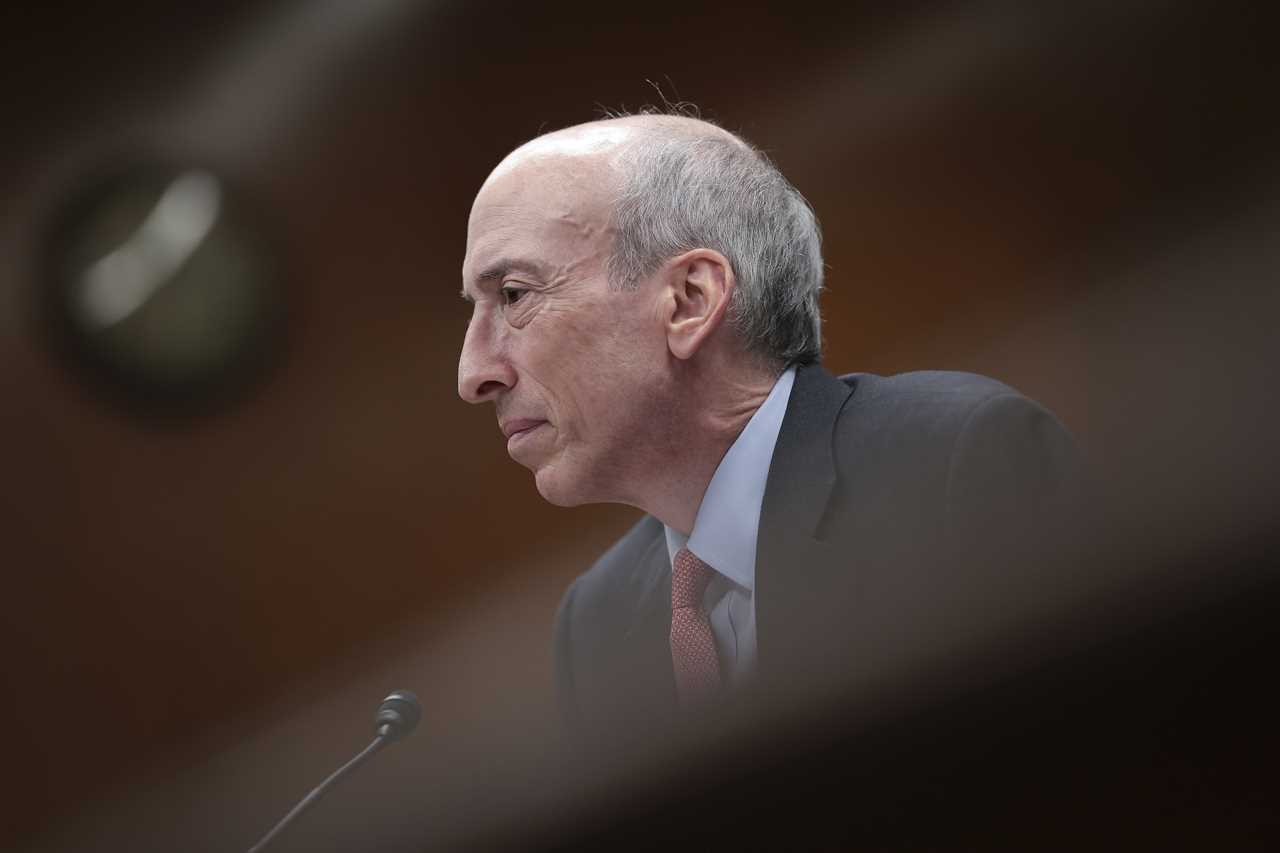
When one-time crypto darling FTX collapsed eight months ago under a cloud of fraud and mismanagement allegations, the digital asset industry seemed headed for a meltdown.
Now — even after the Securities and Exchange Commission launched a sweeping crackdown that ensnared some of the industry’s top players — crypto is back.
Prices are surging in the market. The industry just won a big victory in federal court against the SEC, undercutting the agency’s central claim against crypto. House Republicans have advanced a crypto-friendly bill out of committee with support from across the aisle. And even Wall Street giants like BlackRock are jumping in, proposing to offer the masses an easy way to invest in crypto.
“It’s the upside-down world of crypto,” said John Reed Stark, a former chief of the SEC’s office of internet enforcement, adding that “none of this makes any sense.”
“Why do I feel like I’m this little girl saying the emperor had no clothes, while everyone else is dancing around saying how beautiful the garment is?”
The crypto industry’s rebound illustrates the intense belief that executives and investors have in the market’s future as a crucial corner of global finance and technology. It also underscores the challenge that SEC Chair Gary Gensler faces as he looks to bring the industry into the U.S. regulatory fold.
Crypto has long been dismissed by many as a sideshow fueled by a cocktail of easy money, regulatory defiance and pandemic-fueled fervor — an industry that Gensler says is “rife with fraud and scams and hucksters.” But its persistence shows that it has a stronger-than-expected foothold in the U.S. — one unlikely to shake loose anytime soon, even as the SEC’s warnings to investors pile up.
“The frame of the conversation has shifted in a pretty profound way. Reality has won out here,” said Crypto Council for Innovation CEO Sheila Warren, whose group represents Coinbase, the biggest U.S. crypto exchange, and venture capital firm Paradigm, among other businesses. “This industry is not going away.”
Under Gensler, the SEC has brought lawsuits against industry leaders like Binance and Coinbase and fraud allegations against some of the top moguls. The SEC argues that much of crypto should be subject to the same rules that govern stock and bond trading in the U.S., an approach the agency has taken since the Trump administration.
Without those protections, Gensler says, investors are dealing in a dangerous market riddled with risks and hidden conflicts of interest that would never be allowed in traditional finance.
Indeed, there are still plenty of cracks in the market’s foundation.
Venture capital funding has slowed down. The SEC’s lawsuits against Binance and Coinbase represent potential threats to the way most Americans buy, sell and hold crypto. And while the digital assets market’s global value is up nearly 50 percent this year, that largely reflects the strength of the overall market, which is carrying many risky assets, said Steve Sosnick, chief strategist at Interactive Brokers, a retail brokerage firm.
“Crypto is pure FOMO,” or fear of missing out, said Sosnick. “The bottom line is there’s no there there.”
But while words of caution from major financial regulators might usually spark panic in a market, crypto has been unfazed.

For executives, the lingering bullishness is no surprise. Crypto, they say, is global. It’s been in this situation before — most recently in 2018, following an earlier SEC sweep through the market. And the current crackdown has primarily focused on what Miles Jennings, general counsel of venture capital company Andreessen Horowitz’s crypto division, calls “the casino elements of the industry” — rather than the “true promise of the technology,” which is the decentralization of finance.
“People oftentimes seem baffled by the twisty-turny path that digital assets have taken in both the law and in the markets,” Kraken Chief Legal Officer Marco Santori said. “For some, it’s a source of entertainment, and for others, it’s a source of bewilderment. The reason for that is because crypto is not about the law or the markets. Crypto is a technology. It’s a groundbreaking technology.”
Crypto proponents say they would welcome regulation. But the 90-year-old securities laws that the SEC is pressing companies to comply with are inapplicable, they say.
It’s a stance that Gensler has long rejected — but one that was buttressed earlier in July by a federal judge’s controversial ruling that certain sales of Ripple Labs’ XRP token did not violate U.S. securities laws, as the SEC had alleged.
“We’ve been shouting from the rooftop that there’s a round-peg-square-hole problem” in applying the existing rules to crypto, said Santori. He, like others, argues that the Ripple ruling is evidence of the need for lawmakers to craft a crypto-specific regulatory regime.
The SEC criticized the Ripple ruling in a recent court filing, while indicating it may appeal. The agency called the decision “impossible to reconcile” with the “fundamental securities law principles.”
The SEC declined to comment on this story.
House Republicans have taken up the issue, with proposed legislation spelling out how the SEC and the Commodity Futures Trading Commission should police crypto. The effort gained some bipartisan support, with Rep. Jim Himes of Connecticut among those breaking from other top Democrats on the Financial Services Committee. Still, the path for legislation through the Senate appears rocky.
Wall Street, in the meantime, is finally beginning to follow through on a long-running interest in crypto.
In recent weeks, BlackRock, Invesco and other major financial institutions have applied with the SEC to launch bitcoin exchange-traded funds, or ETFs. ETFs are baskets of securities, commodities or other assets that trade like stocks and are widely popular with ordinary investors.
If approved, the products would likely open the door to a new rush of investors in crypto in the same way they buy and sell Apple stock, an effort that the industry has been pursuing for the last decade.
The push has given crypto believers additional fodder to say that the market is about to take another major step forward.
But Jamil Nazarali, a long-time Citadel Securities executive who now leads crypto exchange EDX Markets, said traditional finance’s interest in crypto likely boils down to a belief in three things: that crypto is here to stay; that traditional financial firms can serve the market better than crypto companies currently do; and that there’s a chance to profit.
“It has evolved as a marketplace,” said Nazarali, whose exchange is backed by Citadel Securities, Charles Schwab and Fidelity, among others. “We’re not all saying this is going to replace ... the financial system. But it does have legitimate promise, and we do think it’s here to stay.”
----------------------------------------
By: Declan Harty
Title: ‘Upside down world’: How crypto thrives even after attacks
Sourced From: www.politico.com/news/2023/07/31/crypto-market-thrives-scandals-00107674
Published Date: Mon, 31 Jul 2023 03:30:00 EST
Did you miss our previous article...
https://consumernewsnetwork.com/politics-us/the-allure-of-good-love-triangles






